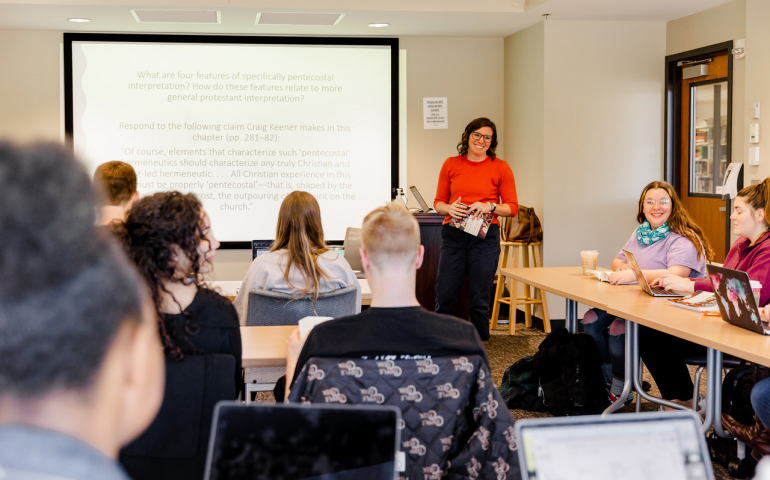Each year, the SNU Office of Academic Affairs selects an area of emphasis for our faculty community. This year, the emphasis is on integrating faith with learning. Having served on the faculty for 33 years, I have experienced several years where this has been the point of focus, and I applaud our academic team, including our Chief Academic Officer, Mark Winslow, PhD, and our Director of Faculty Enrichment, Lynn Lease, PhD, for leading us in this important area.
In the faculty workshop before the start of the Fall semester, the topic of faith-learning integration was introduced. In each faculty meeting, we have heard from members regarding how they are integrating faith in their specific courses and disciplines. At the faculty workshop leading into the current semester, we had the chance to hear from one of the General Superintendents of the Church of the Nazarene, David Busic, DMin. Busic gave a wonderful presentation outlining the distinctive character of faith practiced as a Nazarene and how that should shape higher education.
At SNU, there has always been a culture in which faculty members practice their faith with students. This includes activities like devotionals and prayers offered during class, as well as personal testimonies offered by professors. Faith-learning integration, however, is much more than just spiritual practice. Integrating faith into the curriculum involves connecting the Christian worldview in specific areas of academic preparation. We are, in essence, asking our students to consider how their faith informs their studies and ultimately the practice of their vocations.
CAO Winslow suggests, “We believe that ‘all truth is God’s truth,’ and a dynamic faith not only influences our understanding of disciplines, but faith is also enriched by them. Faith and learning are deeply interconnected, and we strive to model this in our teaching, encouraging students to explore what their faith means in the context of their scholarly activity.”
There is also good evidence that our students are understanding this relationship between being Christian and how that fits in the areas they are studying. I conducted an anonymous survey of one of my classes and asked the question, “In what ways have you seen your professors integrate Christianity into their teaching?” While some of the responses dealt with things like having prayer before class, others correctly identified good faith-learning integration.
One student responded, “My professor often talks about integrity and servant leadership and how that should guide us in how we run our businesses.” Another offered, “My professor always brings up ethical dilemmas and asks us how we should approach them as Christians. It makes me think about how being a Christian applies to real life.”
We talk a lot at SNU about what distinguishes us from other colleges and universities, and our intentional efforts to integrate faith with learning is certainly one of these things. Winslow puts it well by writing, “At SNU, faith isn’t an add-on to learning but a central, transformative part of it. This purposeful integration equips our graduates to live, work, and engage with society in ways that reflect their faith and make a meaningful difference as Christlike disciples.”
Photo by: SNU Creative
